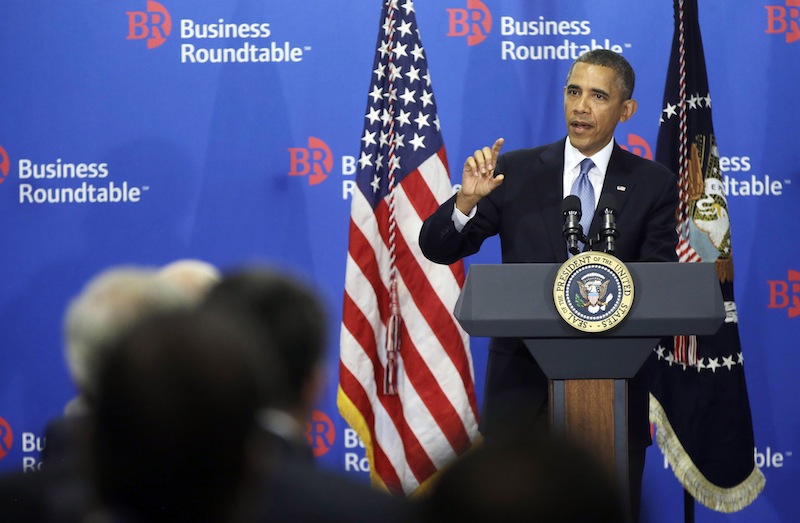President Barack Obama emphasized on Wednesday in his strongest terms yet that the debt limit is non-negotiable and he will not pay Republicans a ransom for agreeing to lift it, accusing them of extortion and threatening “apocalypse” if they don’t get their way.
“You have never seen in the history of the United States, the debt ceiling — or the threat of not raising the debt ceiling — being used to extort a president or a governing party,” the president said at the Business Roundtable Headquarters in Washington, DC. “And trying to force issues that have nothing to do with budget and have nothing to do with the debt.”
His remarks came moments after House GOP leaders announced plans to propose a debt limit increase in the coming week that delays implementation of Obamacare. Republicans may attach other provisions to entice conservatives to vote for a debt limit hike.
The United States’ borrowing authority expires mid-October. The government will have to default on its obligations if Congress doesn’t act to raise the $17.6 trillion debt ceiling.
“I am prepared to look at priorities that the Republicans think we should be promoting,” Obama said. “I’m happy to negotiate with them around the budget, just as I’ve done in the past. What I will not do is to create a habit, a pattern, where by the full faith and credit of the United States ends up being a bargaining chip to set policy. It’s irresponsible.”
Speaker John Boehner (R-OH) reiterated Wednesday that many previous debt limit increases have been paired with fiscal reforms. He’s right — although prior to 2011, when the country came within hours of default, the debt limit had never been used for a party out of power to extract unilateral concessions by threatening default.
A new report released Wednesday by Congress’ Joint Economic Committee found that the mere threat of default has the potential to significantly disrupt the economy.
“With so much at stake, debt-ceiling brinksmanship poses serious and unnecessary risks to the U.S. economy, a fact that became clear during the protracted debt ceiling showdown of 2011,” the report concluded. “The Dow Jones Industrial Average dropped over 2,000 points in late July and early August of that year as Congress struggled to raise the debt ceiling, and Standard and Poor’s downgraded the U.S. credit rating. Consumer confidence also fell sharply in that period.”
“Obama is determined not to repeat the mistake he made by letting Republicans use the debt ceiling as a bargaining chip. He likened the GOP’s position to a hypothetical Democratic Congress demanding that a Republican president agree to tax hikes in exchange for lifting the borrowing limit. Earlier this year, when the debt limit deadline was coming up, Obama refused to negotiate, and as a result, Republicans caved and raised it.
The president called on the business community to use its influence to call on Congress to return to “doing things in a way that reflect the genuine, messy negotiations of democracy, but do not promise apocalypse every three months.”
This article was updated at 12:45 pm ET.






